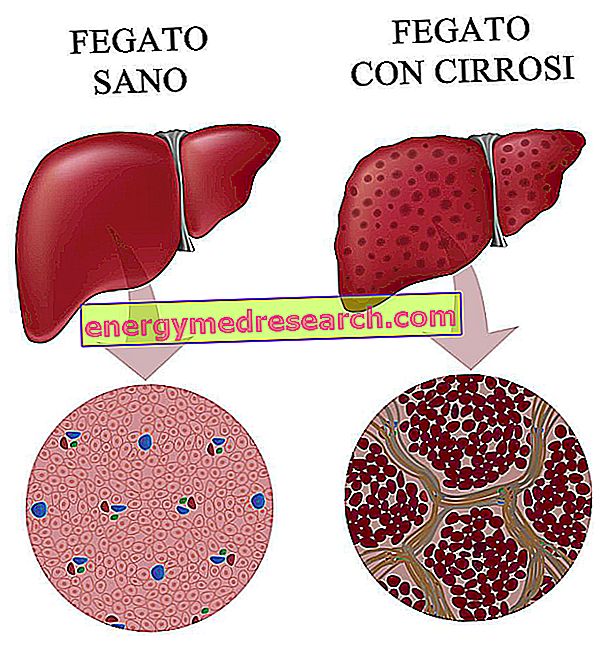
Encephalopathies consist of a group of diseases characterized by a structural and functional alteration of the brain.
Congenital or acquired, an encephalopathy can last a lifetime ( permanent encephalopathy ) or may have a more or less important margin of healing ( temporary encephalopathy ).
The various types of encephalopathy differ from each other due to the triggering causes - to which they usually owe their names - for the symptoms, for the complications, for the treatment and for the prognosis.
Hepatic encephalopathy is a possible consequence of a seriously ill liver, unable to fulfill its main functions.
In fact, when the health of a liver is strongly compromised - as in the case of liver cirrhosis - the normal hepatic mechanism of eliminating toxins and infectious agents is insufficient and inadequate to the requests . This has as a possible effect the accumulation, in the bloodstream, of the aforementioned dangerous substances and the deterioration of the nerve cells, located in the brain.
LIVER ENCEPHALOPATHY: ACUTE FORM AND CHRONIC FORM
Hepatic encephalopathy may have the characteristics of an acute illness or chronic illness.Acute hepatic encephalopathy has a very rapid onset and progression and is generally subsequent to severe liver disease.
According to the Canadian Liver Foundation, the main morbid conditions that accompany acute hepatic encephalopathy are:
- Acute fulminant viral hepatitis . It is a very dangerous viral hepatitis, which determines its effects very quickly.
- Toxic hepatitis . It is a hepatitis that arises following exposure to certain substances, including alcohol, drugs, particular chemicals, etc.
- Reye's syndrome . It is a serious disease that affects children and causes inflammation of the liver and cerebral edema.
Chronic hepatic encephalopathy, on the other hand, is established slowly and more subtly (compared to the acute form); it can have all the characteristics of a permanent encephalopathy - consequently it does not respond very well to treatments - and it is usually connected to liver cirrhosis .
This is a fairly rare condition.
POSSIBLE FACTORS FAVORING HEPATHYPHALOPATHY
Although there is still a lack of precise scientific evidence in this regard, the factors and conditions potentially capable of causing hepatic encephalopathy, when the liver is seriously ill at the same time, are:- A nitrogen overload. It occurs, for example, when taking too much protein, in the presence of severe kidney problems, due to gastrointestinal bleeding, for a state of prolonged constipation, etc.
- Dehydration
- Presence of electrolytic or metabolic imbalances of various nature (for example: hyponatremia, hypokalemia, alkalosis, etc.).
- Improper intake of benzodiazepines (sedative drugs), narcotics (pain medications), antipsychotics.
- Alcohol poisoning
- Hypoxia, or low levels of oxygen in body tissues
- Infections of various types such as pneumonia, urinary tract infections, etc.
- Surgical interventions



